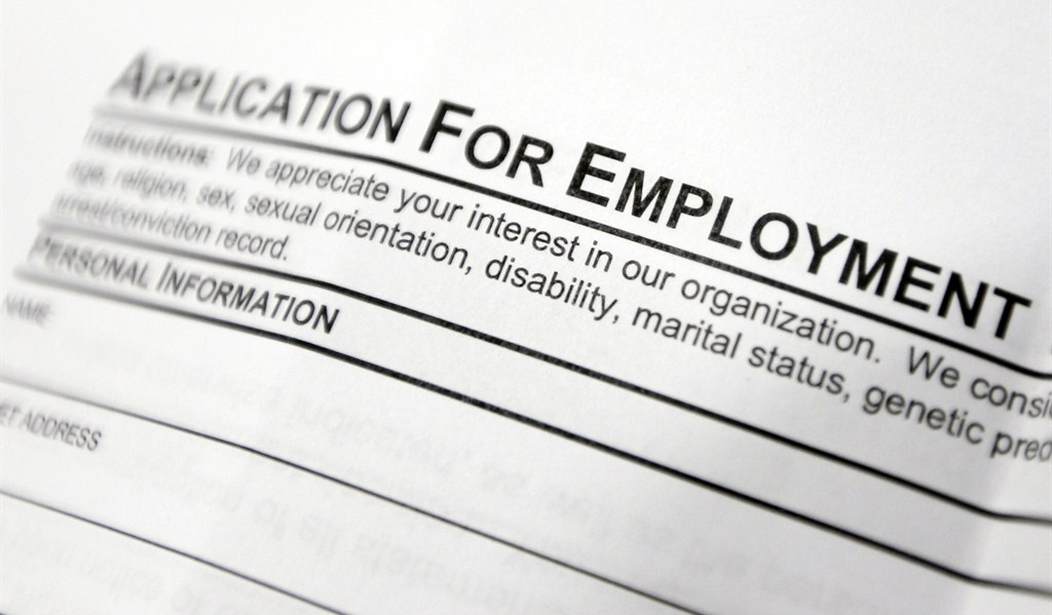Now that more Americans are beginning to feel the economic recovery, thanks largely to lower gas prices, Republicans are beginning to shift their rhetoric on President Obama's economic record. Suddenly "income inequality" is all the rage.
Mitt Romney talked about it at the Republican National Committee Meeting in San Diego.
This new line of attack could be a good one because it is true: income inequality has gotten worse under Obama.
But the message Republicans are selling on income inequality is flat footed. They are still letting liberals and their allies in the media frame the debate. They need to talk about the issue differently and they need to admit Obama isn't the beginning, or end, of the problem.
But first the facts.
According to UC Berkeley Professor Emmanuel Saez, the share of income going to the nation's top 1 percent of earners has been rising steadily since 1970. During recessions, top earners do see their share of income plummet, but it then comes back even stronger during recoveries. Congressional Budget Office data tells the same story.
Income inequality isn't necessarily bad, especially when everyone's income is rising. But that just hasn't been the case during the last two recoveries. Median income reached an all-time high in 1999 at $56,895 (all data in constant 2013 dollars) before falling to $54,674 in 2004. It then rose again until 2007 when it reached $56,436, a little more than $400 away from the 1999 high.
Recommended
But then median income continued to fall through 2012, well after the wealthy began to see gains, finally settling at $51,758. In 2013, the last year for which data is available, median income did inch up to $51,939, but that is still more than $4,000 lower than it's pre-recession high.
The Reagan and first President Bush recoveries were completely different. Before falling in 1990, median income rose for six consecutive years beginning in 1983 and median earners found themselves $3,000 better off from the previous pre-recession high and $6,000 better off than the recession low.
The 1990s recovery, which began under Bush not President Clinton, also saw median incomes recover from a pre-recession high of $52,435 to $56,800 in 1999.
So why didn't median incomes recover during the last two recessions?
We do not really know. But we do know that income inequality is worse, and median incomes have recovered slower, in blue states governed by liberal Democrats with more of the "middle-class economic" policies that Obama now wants to force on the rest of the nation.
In California, for example, which has the higher minimum wage and generous leave policies that Obama wants, all of the wealth created during the Obama recovery has gone to the top 1 percent of earners and median income has fallen more than $1,000 (from $62,280 to $61,094).
Meanwhile, in the red state of Texas, which has fought the Obama agenda at every turn, just 86 percent of income gains during the last recovery has gone to top earners and, more importantly, the median income has risen from $49,420 to $51,900.
So the first thing Republicans need to do when journalists ask them about income inequality is remind everyone that liberal blue states with policies favored by Obama have worse income inequality and falling median incomes while red states with conservative policies have rising median incomes and more evenly distributed income gains (Rand Paul did this briefly in Palm Springs but he didn't hammer it home enough).
More importantly, Republicans need to do a better job of flipping the income inequality question on its head. Here is ABC's John Karl from Palm Springs: "And my question to you, beyond Romney, this is a much bigger issue than any one candidate is do you think that we have a problem in this country with the rising-- with the increasing gap between rich and poor and is it the job of government to try to lessen that gap?"
Note the implicit assumption in Karl's question: that we already have some type of free-market utopia that produces income inequality so the only question is what more government should do to address this problem.
Republicans must reject this premise. Yes, there is a ton government can do to lessen income inequality and government's absolute top priority in that regard should be to identify existing government policies that are already making that problem worse and change them.
That means reforming a tax code that spends $1.4 trillion on tax expenditures that go predominately to the wealthy and then using those revenues to put more money in every paycheck of every working American by cutting the payroll tax.
That means reforming a welfare system that punishes the one institution that the vast majority of Americans know is the best weapon against poverty: marriage.
That means scaling back all the ways the federal government makes it more expensive to hire Americans, like Obamacare's employer mandate.
That means stop drowning the American people in student and mortgage debt. If we want more affordable housing or lower tuition, let's remove the barriers to building more homes and deregulate higher education.
That means adopting immigration policies that put American workers ahead of foreign workers.
That means breaking up the banks that helped cause the last financial meltdown.
That means ending government created monopolies for taxi cabs and occupational licenses.
And it means ending a drug war that puts far too many otherwise productive members of the community behind bars.
The federal government is larger now than it ever has been. It touches more of our every day lives than ever before.
Is it really helping us? Is more government really the answer?
Republicans need to become more articulate and more specific about the ways government makes it harder for everyday Americans to get ahead. Just saying "crony capitalism" or decrying "regulation" and "lobbyists" isn't enough.

























Join the conversation as a VIP Member